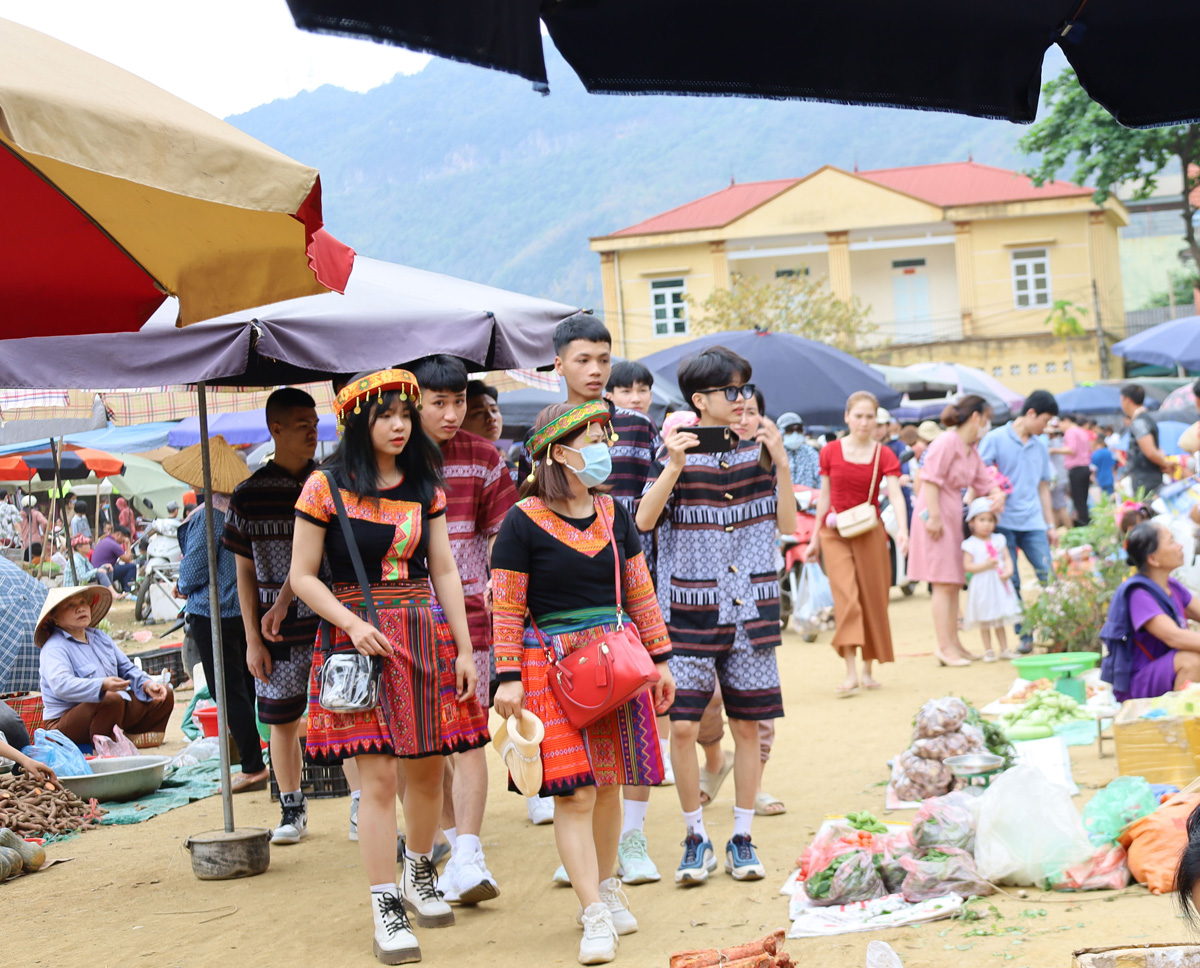
(HBO) – The Mai Chau uplandmarket - a unique tourism product of Hoa Binh province’s Mai Chau district – becomes more and more attractive to holidaymakers, offering tourists a venue to experience daily activities and understand more about traditional culture identities of the locality.

Visitors
are interested in traditional costumes sold at the market.
In the first Sunday of April, people from
the Hang Kia, Pa Co, Dong Tan, Son Thuy, Bao La, Chieng Chau, Mai Ha and Thanh
Son communes of Mai Chau district transport their products or those found in
forests such as orchids, vegetables, bitter bamboo shoots and mountain snails, to the market for sale.
Because loving the natural scenery and people of Mai Chau so much, many
tourists visit the destination not just once.
They said visiting the market, they have a chance to learn more about unique
cultural identities of the locality, and buy agricultural products that
have not been sold in Hanoi.
According to Vice Chairman of the
Mai Chau district People’s Committee Pham Van Hoan, the highland
marketfestival is held every Sunday as part of activities to mark the
southern liberation and national reunification day (April 30) and May Day (May
1), and to stimulate tourism demand.
During the festival, visitors enjoy music
performances imbued with national cultural identity and play popular folk games
such as tu lu, to le, and rope swing.
The festival contributes to introducing and popularising local tourism images,
beauty of local customs and cultural identities of ethnic minorities, thus
attracting more domestic and foreign visitors and further promoting
socio-economic development of the locality./.
Phong Phu commune, Tan Lac district of Hoa Binh province, is widely regarded as the cultural heartland of the Muong ethnic group. Among its many traditional communities, Luy Ai hamlet (formerly Ai hamlet) stands out as a rare location where the customs and way of life of the Muong Bi people remain largely intact.
The Truong Kha temple festival, a distinctive cultural event held every three years in Vu Ban township, Lac Son district, returned recently with vibrant rituals and folk traditions of the Muong people. Located next to the Buoi River in the Muong Trao fields, the Truong Kha Temple is dedicated to the three Kun Dol deities, revered for teaching farming techniques, irrigation, weaving, and protecting the harvest.
The demand for spaces serving community activities of residents in various areas across Hoa Binh city has been satisfied as local cultural houses now feature modern, spacious facilities thanks to the effective implementation of Resolution No. 49/NQ-HDND issued on December 28, 2021 by the city People's Council, which approved the plan for reorganising, converting, and allocating land for the construction, repair, and expansion of cultural houses in Hoa Binh’s villages and residential areas until 2025.
At the end of May, the Hoa Binh Provincial Ethnic Arts Troupe organized a series of performances for residents in Region 2 and Region 3 communes across the province. Bringing art to ethnic communities in remote, isolated, and especially disadvantaged areas has become a meaningful activity. These are not merely artistic performances but also journeys to disseminate cultural values, enrich spiritual life, and contribute to preserving the cultural identity of ethnic minorities.



